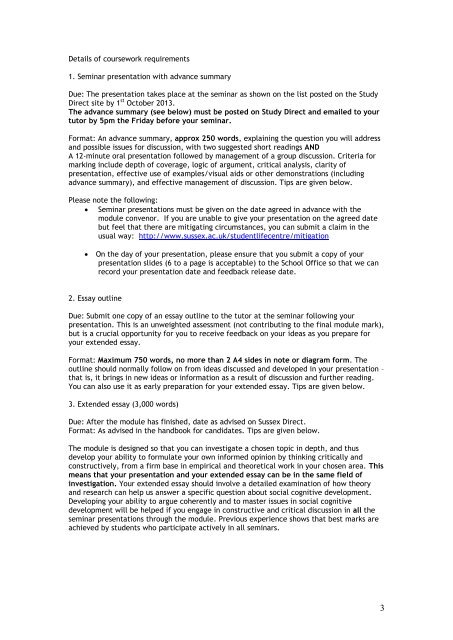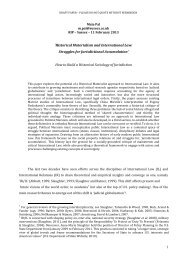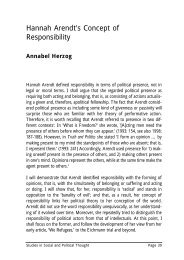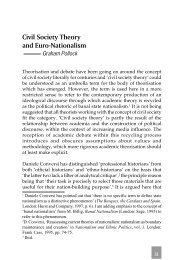Social Cognitive Development handbook 13-14 - University of Sussex
Social Cognitive Development handbook 13-14 - University of Sussex
Social Cognitive Development handbook 13-14 - University of Sussex
You also want an ePaper? Increase the reach of your titles
YUMPU automatically turns print PDFs into web optimized ePapers that Google loves.
Details <strong>of</strong> coursework requirements<br />
1. Seminar presentation with advance summary<br />
Due: The presentation takes place at the seminar as shown on the list posted on the Study<br />
Direct site by 1 st October 20<strong>13</strong>.<br />
The advance summary (see below) must be posted on Study Direct and emailed to your<br />
tutor by 5pm the Friday before your seminar.<br />
Format: An advance summary, approx 250 words, explaining the question you will address<br />
and possible issues for discussion, with two suggested short readings AND<br />
A 12-minute oral presentation followed by management <strong>of</strong> a group discussion. Criteria for<br />
marking include depth <strong>of</strong> coverage, logic <strong>of</strong> argument, critical analysis, clarity <strong>of</strong><br />
presentation, effective use <strong>of</strong> examples/visual aids or other demonstrations (including<br />
advance summary), and effective management <strong>of</strong> discussion. Tips are given below.<br />
Please note the following:<br />
Seminar presentations must be given on the date agreed in advance with the<br />
module convenor. If you are unable to give your presentation on the agreed date<br />
but feel that there are mitigating circumstances, you can submit a claim in the<br />
usual way: http://www.sussex.ac.uk/studentlifecentre/mitigation<br />
<br />
On the day <strong>of</strong> your presentation, please ensure that you submit a copy <strong>of</strong> your<br />
presentation slides (6 to a page is acceptable) to the School Office so that we can<br />
record your presentation date and feedback release date.<br />
2. Essay outline<br />
Due: Submit one copy <strong>of</strong> an essay outline to the tutor at the seminar following your<br />
presentation. This is an unweighted assessment (not contributing to the final module mark),<br />
but is a crucial opportunity for you to receive feedback on your ideas as you prepare for<br />
your extended essay.<br />
Format: Maximum 750 words, no more than 2 A4 sides in note or diagram form. The<br />
outline should normally follow on from ideas discussed and developed in your presentation –<br />
that is, it brings in new ideas or information as a result <strong>of</strong> discussion and further reading.<br />
You can also use it as early preparation for your extended essay. Tips are given below.<br />
3. Extended essay (3,000 words)<br />
Due: After the module has finished, date as advised on <strong>Sussex</strong> Direct.<br />
Format: As advised in the <strong>handbook</strong> for candidates. Tips are given below.<br />
The module is designed so that you can investigate a chosen topic in depth, and thus<br />
develop your ability to formulate your own informed opinion by thinking critically and<br />
constructively, from a firm base in empirical and theoretical work in your chosen area. This<br />
means that your presentation and your extended essay can be in the same field <strong>of</strong><br />
investigation. Your extended essay should involve a detailed examination <strong>of</strong> how theory<br />
and research can help us answer a specific question about social cognitive development.<br />
Developing your ability to argue coherently and to master issues in social cognitive<br />
development will be helped if you engage in constructive and critical discussion in all the<br />
seminar presentations through the module. Previous experience shows that best marks are<br />
achieved by students who participate actively in all seminars.<br />
3
















